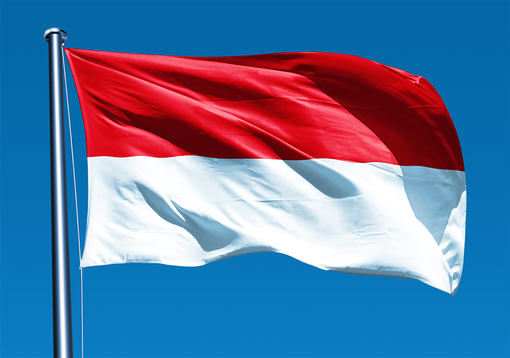
Indonesia's micro-, small- and medium-sized enterprises (MSMEs) are set to benefit from the Comprehensive and Progressive Agreement for Trans-Pacific Partnership (CPTPP), gaining access to new markets and export opportunities, but financial and regulatory challenges remain a significant hurdle. Financing companies could play a key role in helping MSMEs to overcome these challenges, providing crucial investment for technology, capacity building and compliance, enabling Indonesian MSMEs to better reap the benefits of CPTPP membership.
As Indonesia seeks to modernise its trade framework, the Comprehensive and Progressive Agreement for Trans-Pacific Partnership (CPTPP) presents new avenues for micro-, small- and medium-sized enterprises (MSMEs) to grow. MSMEs, which dominate the business sector in Indonesia, stand to gain access to enhanced export prospects from the CPTPP. But it remains unclear if they can overcome the financial barriers to seize these opportunities.
Indonesia officially applied to join the CPTPP in September 2024 and accession to the agreement will provide economic benefits, including access to new markets, which are not covered by existing trade agreements. Indonesia is forecasted to see a 19 per cent rise in exports and its GDP is also projected to grow by approximately US$1.6 billion.
MSMEs are a cornerstone of Indonesia’s economy, contributing 61 per cent to the country’s GDP and employing 97 per cent of the workforce. The contribution of MSMEs to exports was valued at US$22.1 billion in September 2024, a 6.4 per cent increase from the previous year.
But MSMEs face challenges in escalating exports, namely financial barriers, logistical complexities, international payment systems and having the capacity to meet global demand.
The CPTPP presents several provisions to address these challenges. Chapter 5 on Customs Administration and Trade Facilitation promotes the simplification of customs procedures, reduction of red tape and acceleration of cross-border trade.
But when Indonesia becomes a CPTPP member, the call for financing among MSMEs is expected to intensify. While the CPTPP opens market opportunities by providing preferential access to member countries, MSMEs will face higher standards and regulatory requirements to compete in international markets, which will necessitate investments in technology, production capacities and human resources. And compliance with product quality, safety and environmental standards will involve significant investments in quality control and certifications.
Financing companies will be essential in providing the capital MSMEs need. The financing gap for MSMEs in Indonesia is projected to reach Rp 4300 trillion (US$270 trillion) by 2026, with the current financial sector only able to meet about 35 per cent of MSME financing needs. According to a 2022 Indonesia Financial Services Authority study, 55.4 per cent of the total financing needs of MSMEs could be supported by the non-bank financial industry, particularly financing companies.
These companies are authorised to offer a range of financial products including investment financing, working capital and multi-purpose financing to help MSMEs meet the expectations of international trade. Financing companies can also aid MSMEs by offering investment financing to acquire the production equipment and facilities needed to compete at an international level. Working capital financing also enables day-to-day operations, ensuring that MSMEs can cover costs related to production, inventory and shipment.
Any such measures taken by financing companies must follow the World Trade Organization (WTO) Agreement on Subsidies and Countervailing Measures (SCM Agreement). The financing provided must not violate Articles 1, 2 and 3 of the SCM Agreement, which govern the definition, specificity and prohibition of subsidies. The assistance provided by financing companies, if structured appropriately, would not be classified as a subsidy under the WTO framework unless it involves direct government intervention or is tied to export performance.
SCM Agreement Articles 1 and 2 define subsidies as financial contributions by government entities that confer benefits specific to enterprises or industries. Financing products that are available to MSMEs across various sectors and not contingent upon export performance are unlikely to be considered specific or prohibited subsidies under WTO law.
Article 24 of the General Agreement on Tariffs and Trade allows for the formation of trade agreements like the CPTPP, provided they do not raise barriers to trade with non-member countries. If the financing measures offered by Indonesian financing companies to MSMEs do not result in prohibited export subsidies or discriminatory practices, they can be seen as compliant with both WTO and CPTPP obligations.
Under Article 11.5 of the CPTPP’s Trade in Services chapter, MSMEs also benefit from transparent, non-discriminatory regulations, easing their ability to expand internationally. Chapter 24 of the CPTPP on Small and Medium-Sized Enterprisessupports this by simplifying trade procedures, providing access to information and encouraging capacity-building.
The CPTPP offers Indonesia’s MSMEs the opportunity to thrive in global markets. With elevated access to new trade partners and a clear path towards economic growth, the potential for export expansion is significant. But realising this potential hinges on addressing the financial hurdles that many MSMEs face. Financing companies have a critical role to play in bridging this gap, providing the resources needed to navigate the complexities of international trade while meeting global standards.
By empowering MSMEs with the right financial tools, Indonesia can unlock the full benefits of its CPTPP membership, fostering a more robust and globally competitive economy. Collaboration between financing companies and MSMEs will be pivotal to shaping a prosperous future under the CPTPP framework.
Source: EastAsiaForum
Share: